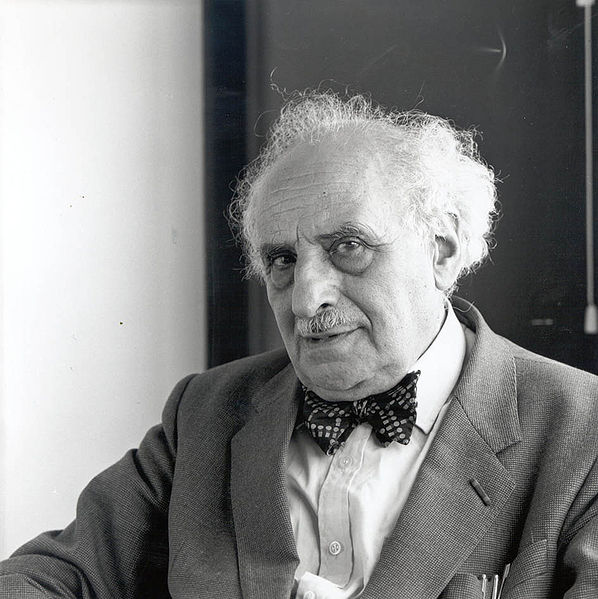<Back to Index>
- Mathematician Hans Freudenthal, 1905
- Dramatist Guillaume Victor Émile Augier, 1820
- 1st President of Angola António Agostinho Neto, 1922
PAGE SPONSOR

Hans Freudenthal (September 17, 1905, Luckenwalde, Brandenburg – October 13, 1990) was a Dutch mathematician. He made substantial contributions to algebraic topology and also took an interest in literature, philosophy, history and mathematics education.
Freudenthal was born in Luckenwalde in Germany into a Jewish family and completed his thesis work with Heinz Hopf at the University of Berlin, and defended a thesis on the ends of topological groups in 1930. He was officially awarded a degree in October 1931. He then went to Amsterdam to serve as assistant to Brouwer. In 1937 he proved the Freudenthal suspension theorem.
In 1941 Freudenthal was suspended from duties at the University of Amsterdam by the Nazis. His wife, however, was not Jewish, so he was not sent to a concentration camp in eastern Europe but he was deported to a labor camp in the village of Havelte in the Netherlands. At the end of 1944 he was able to escape and join his family in occupied Amsterdam.
Later in his life, Freudenthal focused on elementary mathematics education. In the 1970s, his single - handed intervention prevented the Netherlands from following the worldwide trend of "`new math"'. He was also a fervent critic of one of the first international school achievement studies.
In 1971 he founded the IOWO at Utrecht University, that after his death was renamed Freudenthal Institute, the current Freudenthal institute for science and mathematics education. He was awarded the Gouden Ganzenveer award in 1984, and died in Utrecht in 1990, sitting on a bench in a park where he always took a morning walk.